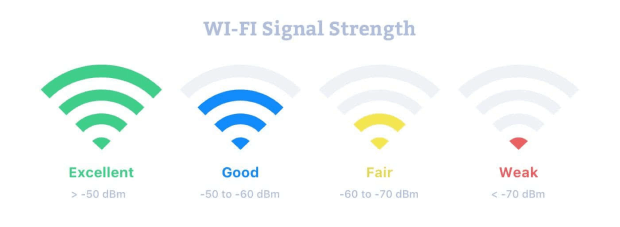
Hi, what brings you in today?” I chirp for perhaps the fortieth time that day. Each purchaser who walks into the shop is subjected to the equal insipid script, which may vary slightly depending on the climate (“Is it still raining available?”). Once I decide her wishes (an agency Christmas party), I steer her to an appropriate black sequined top, turn her over to every other companion, and hustle returned to the front of the shop to copy the procedure. I’m on greeting responsibility today; this means making sure no client is going unacknowledged, and giving up a maximum of my commissions for the day. It’s demoralizing. However, that’s retail.
Typically, consumers don’t provide plenty of concept to the ever-present sales companion, despite retail being the kingdom’s No. 1 occupation. And neither did I — till I signed up for what I referred to as “my little retirement job” following a protracted profession as a reporter at the Chicago Tribune. I took a gig at White House Black Market at Oakbrook Center, an upscale girls’ clothing store in an equally high-end mall in Chicago’s western suburbs. Rarely have I seen such work so tough for so little.
The fact that retail is low-paying will rarely be a flash to all people. But it became an eye-opener to analyze first-hand just how abysmal the compensation may be. At $9.50 an hour, I could make two times as tons babysitting, with better snacks, Netflix, and no wardrobe requirements. And at the same time, as the reimbursement in retail is at an increasing low, the stakes have by no means been higher.
At a time whilst there’s plenty hand-wringing over the decline of brick-and-mortar shops, companies are banking on the customer experience to set them aside from e-trade. In this new retail international, it’s as much as us “women” — and we are all ladies — to be the saviors of this large enterprise, which employs 1 out of 10 Americans, by delivering greater first-class steeply-priced service on unlivable wages.
Merchants can’t threaten messy cabinets, lacking sizes, or long lines at the test-out, especially for what is predicted to be the strongest holiday season in years. With the wave of closings this year, from Sears to Lord & Taylor, we had to step up our customer service.
Do you need another length? We’ll deliver it to you. Want it in petite? We’ll hunt it down at every other saving, and it’ll be shipped to you, free from the rate.
Do you want a “smoking warm” dress for your ex’s wedding? The challenge is widespread.
Such attentiveness way sales group of workers regularly ask clients to step out of the dressing room so that we can check the suit of a garment. But it’s also a key strategy for growing units in line with the transaction (UPT), which the organization perspectives as a crucial metric.
That manner, while you’re slipping into one’s jeans, I’m already scouring the racks for a pinnacle, a jacket, and a belt. If you’re trying on a glitzy cocktail dress, I’ll appear with a couple of plum velvet pumps, coaxing you out of your Nikes. Ostensibly, it offers you a better concept of the entire appearance, but it’s also a way to feature $one hundred fifty in the sale.
A UPT of 3 is considered true; a 4 is first-rate. The time I hit a 9 was as exhilarating as any web page-one tale at some stage in my newspaper days. (I even saved the cash register receipt.)
The interest doesn’t cease while the patron leaves the store. To build emblem loyalty, the organization encourages friends to keep up with big spenders using thank you notes, even supplying stationery and a manager-approved script.
All this effort will pay off, as a minimum for the corporation. One co-employee has a customer so devoted that she stops in every Saturday, without fail. She may purchase one object or five items. However, she always buys something. While that devotion is unusual, I see genuine affection among longtime customers and friends every day. Maybe that’s why our stores, regardless of a lot of competition (Banana Republic, Zara, Ann Taylor), simply around the corner, are always among the top 10 grossing White House Black Market stores in the US of a point of delight for our personnel of 30.
I’m lucky to be in an economic position where I can find the money to work 10 hours per week for $nine.50 an hour. A commission is on a sliding scale; promoting $201 of merchandise gets you $1 in commission, while a $500 sale nets you $five. Even in my first-class weeks, I don’t often clear $100 after taxes (and that became earlier than I gave the maximum of it back to the agency with my very own purchases, regardless of my employee discount). But not like many of my colleagues, I don’t depend on this task to continue to exist. Those who do are continually damaging their teeth or having a flat tire, far away from financial disaster.
There are different indignities, too. Working a five-hour shift earns a 10-minute destroy — not sufficient time to go to Starbucks, an insignificant eighty steps from our front door. Upon leaving at the end of the day, all personnel need to open their luggage for inspection, which is normal for the industry, in line with experts, but not for me. Never before have I held a task in which I needed to ask permission to get a cup of coffee or publish to a search. The scrutiny changed into demeaning.
While it’s clean to disregard the “girls” as low-wage, unskilled labor, they are the toughest-operating folks I’ve ever encountered.
This process calls for an impressive array of competencies: non-public, bodily, and diplomatic. We steam racks of garments, wrestle sweaters off mannequins, vacuum dressing rooms, and haul out the trash; we make sale after sale with smiles on our faces and heels on our feet; we handle customers trying to return manifestly worn clothes and others who want a shoulder to cry on.
So why no longer take the ones equal abilities to a more moneymaking field? Because my co-employees love apparel — the joys of unpacking today’s cargo, of locating lovely matters in a regularly ugly international. For now, they’re willing to be paid in cachet in preference to cash.
As a seasonal hire, I’ll be gone in January, leaving it to others to hold malls afloat. My bank account isn’t many of the kind that once I started, you have to see my closet.












